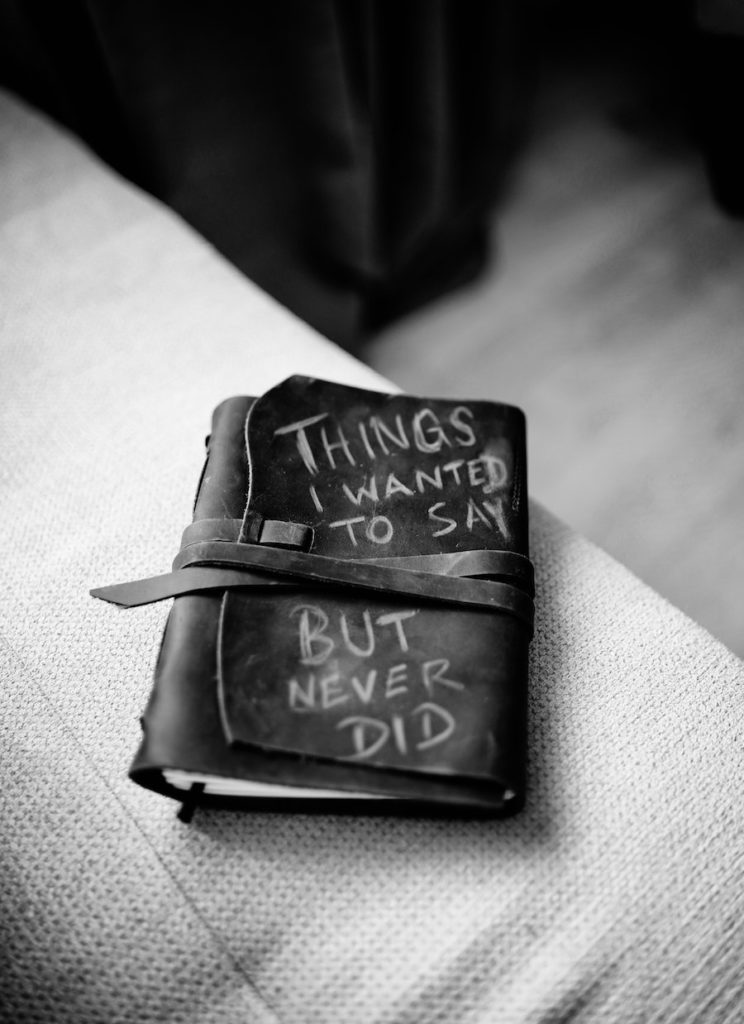By Curt Collier
Words do have power; words can move a crowd or a nation. Words can heal as well as harm. They can lift people up from despair. Words can change hearts and minds. But can words ever fill a hole where a bomb went off? How many words to fill the infinite void left by a dead child? The truth is, there aren’t enough words in any language, and ultimately we are left with deafening silence.
The word abracadabra has an interesting and obscure origin. It is believed to have been used since well before Roman times, written on amulets to protect the wearer as a sort of talisman. The word itself may have had different origins, but the story I was told is that it was ancient Aramaic or Hebrew and meant “I will create from my words.” (Note the similarities with Hebrew אברא מדברי). It is used to this day by magicians who suddenly produce objects out of silk top hats. I’ve always wanted a word like that…a word with real power that could bring peace, or healing, or food on the table with its mere utterance. I’ve seen poets do that, but is there yet a word that can stop a speeding bullet? Sadly, alas, no, and I don’t believe that form of magic exists.
There’s power in an earnest word
I’ve never seen a field guide to words, but I believe that perhaps their power is derived by how, and by whom, they are spoken. I’ve seen words carved on monuments and cenotaphs that resonated deeply and had impact, but an earnestly spoken word does so much more. Perhaps, then, words derive their true power when arising from deep within us. There is a symbiosis to words. I may admire a beach scattered with colorful shells, but when that shell comes alive and its denizen carries the weight back towards crashing waves, that is the moment I fully appreciate their beauty. Words are like that. Words are information the physicist argues, having force and weight. They are the blood and form the DNA of culture, argues the sociologist. They are what can be known, and what can be unknown, says the lyricist.
I wish I had a mastery of words. I would use them to describe in such detail the horror of war such as that being suffered right now in the Ukraine that no parent would ever allow their child to be a soldier. I would write how the actions of Putin and his cronies are the result of the corruption within the Russian groupthink. I would opine on the histories of Russian oppression, both external and self-inflicted, of the commonalities of oppression. I would yell “STOP!” with such magnitude as to halt tanks in their tracks. I would soothe you with words that bad people will be brought to justice, words to hail heroes such as Ukrainian shopkeepers, flower vendors, actors, farmers, and parents, and regale you with the ardor of their resistance. Resistance. Even writing that word I feel its weight. You must feel it, too.
Words to heal all of us
Unhappily, I am not such a poet. Conceivably that is why I moved on to build gardens instead. At least in such a place I might give you a moment of respite. A place where your children could play safely, where we can chat as friends as we watch bumblebees tumble their way from blossom to blossom. I wish, in that place, that I would find the words to heal all of us once again from the cruelty, the destruction, the violence, the sadness. I admit the words I need to say won’t come without a struggle. What words can replace what you have experienced, what you have lost? Perhaps the only thing I can do is build a place for you and me, and occasionally, just hold your hand.
Curt Collier is leader of the Ethical Culture Society of Bergen County.



